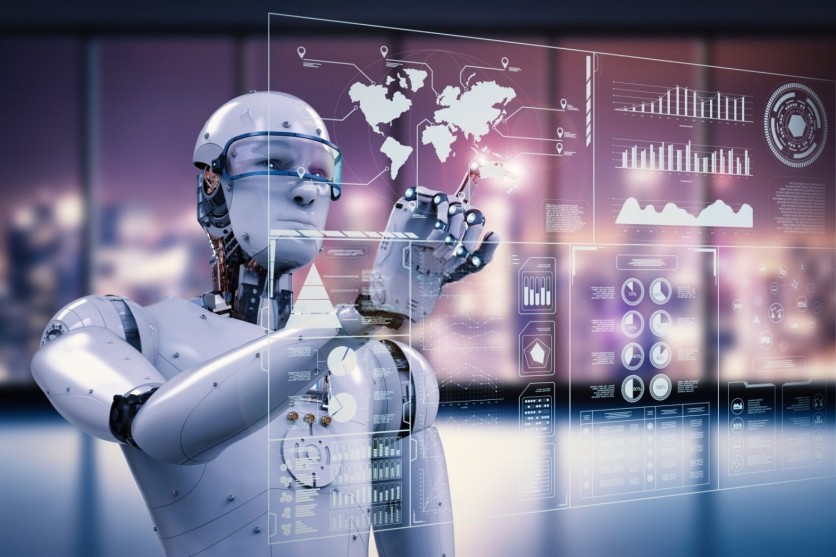
The rapid rise of artificial intelligence has produced an ever-growing discussion surrounding the role of machines in our daily lives. We're often told that clever robots and dizzying software services will soon replace human workers in just about every realm of life, with some even musing that Terminator-style dystopias linger not too far off in the distance. Despite the hubbub around AI, however, it continues to struggle with many tasks, not least of which is natural language translation.
Why is AI still struggling with language translation, especially since we're oft-reminded of its prowess? Here are some of the major hurdles that machines have yet to surmount, and what the future has in store for language translation as we know it.
Machines are great, but not at everything
It's pointless to argue against the merits of artificial intelligence, increased automation, and the ever-growing role of data in contemporary life; after all, machines are just fantastic, making our lives easier while providing us hitherto unimaginable luxuries. Just because the machines are great at doing some things doesn't mean they're fantastic at everything, however. Rather than viewing robots as jacks of all trades, we should be viewing them as specialized tools designed to tackle specific problems within a unique context.
When you picture AI in this fashion, it becomes much easier to understand why the robots are still struggling with language translation. Oftentimes, contemporary AI processes simply lack the kind of skills needed to effectively grapple with complex language translation problems. While companies like Microsoft are grabbing the attention of headline-writers everywhere with fantastic claims that they have AI services which can translate Chinese as well as humans, it's simply a matter of fact that AI is lagging as a whole when it comes to language translation.
Most contemporary AI systems like Siri still have no real understanding of the words they use when communicating with their human counterparts. We can talk into our phones, for instance, and they can follow our basic commands with ease, but you can't have a meaningful conversation with your AI-partner or expect robotic systems to have a comprehensive understanding of what's going on. Instead, they're simply following directions, and that lac of initiative and creative spark is what makes it so challenging for AI to handle language translation.
Human language is immensely complex, especially since it's ever-changing. New slang appears on an almost daily basis, with slurs and lingo regularly shifting with the times. Yesterday's swear word is today's casual exclamation, and what's acceptable now will be considered horribly offensive tomorrow. We shouldn't expect AI to keep up to date with this dizzying, organic evolution of language, though that doesn't mean it can't be of use to translators or for outsourcing bookkeeping services.
Human translators aren't endangered - they're empowered
Take a look in any direction and you'll soon find someone talking about how human workers are obsolete. The machines are coming for our jobs, we're told, with many contemporary workers being little more than endangered species merely counting down the days until they're replaced by a complex software service that can do more with less. This is a hopeless and error-riddled perspective, however, and one that should be heartily rejected by AI proponents and critics alike if we're to have a sustainable future where AI improves our lives.
Human translators aren't so much endangered by advancements in AI as they are empowered by them. Neural machine technology will continue to get better, but it certainly won't replace human translators entirely, especially when it comes to crucially important business and political matters where a slight glitch in a bit of code could cause an international incident or send a company's prospective partners running away in anger. The vulnerable nature of machine learning technology, too, dictates that it can't be too heavily relied upon; breaching the security of a translating service would allow you to dictate what people are hearing, for instance, which could pave the way for a new era of misinformation.
AI is still struggling with language translation because of some impassable barriers that machines will never be able to surmount, especially when it comes to creative work that includes the complexity of organic human interactions. Deep learning is helping AI processes become better at what they do, but machines can't yet replace humans, and the possibility of software going rogue will always be looming large in the minds of business professionals who are looking for reliable translators to cover crucial topics.
AI works best with clear, limited sets of rules that it can easily understand. Human language, however, is anything but clear, limited, and confined within an easily delineated set of rules; as a matter of fact, our language and how we leverage it is one of the most fascinating and dizzying aspects of our species. When it comes to language translation, try not to succumb to fears of a robot takeover; AI may be changing translation as we know it, but human expertise and insight isn't going anywhere anytime soon.
![Apple Watch Series 10 [GPS 42mm]](https://d.techtimes.com/en/full/453899/apple-watch-series-10-gps-42mm.jpg?w=184&h=103&f=9fb3c2ea2db928c663d1d2eadbcb3e52)



